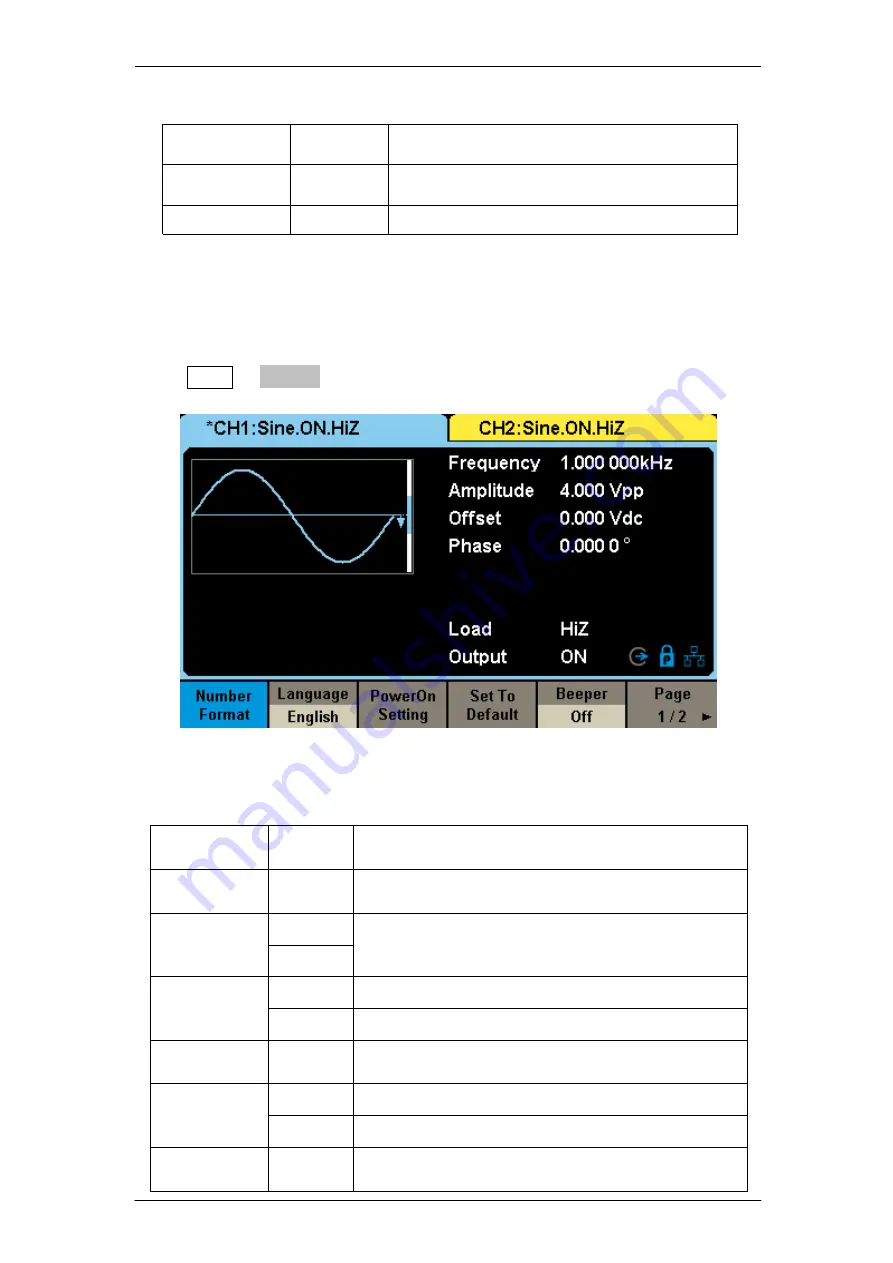
107
2.7.1
System Settings
Press Utility → System, to enter the following interface.
Table 2-29 Menu Explanations of System Setup (Page 1/2)
Function
Menu
Settings
Explanation
Number
format
Set the number format.
Language
English
Set the language.
Chinese
PowerOn
Default
All the settings return to default when power on; Last
All the settings return to the setting of last power on.
Set to
Default
Set all the settings to default.
Beeper
On
Open the beeper.
Off
Close the beeper.
Page
1/2
Enter the next page.
Table 2-31 Menu Explanation of Utility (Page 3/3)
Function
Menu
Settings
Explanation
Multi-Device
Sync
Multi-Device Synchronization setting
Page 3/3
Return to Page 1
Figure 2-48 System Setup Interface (Page 1/2)






























